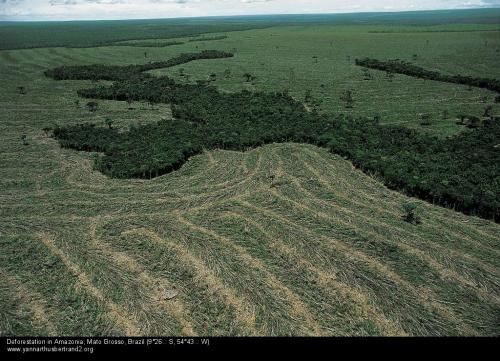Eat less meat. Eat no meat. Or eat different types of meat. This is perhaps the biggest and most important action an individual can do to preserve the environment: cutting meat from their diet. Here’s how eating less meat can help save the world.
#1. Eating less meat/no meat saves lives.

Source: http://www.abolitionistvegansociety.org/
Not only does it save lives, but it stops humans from domesticating animals and using them for their own purposes. To quote Alice Walker, “The animals of the world exist for their own reasons. They were not made for humans any more than black people were made for white, or women created for men.”
#2. Eating less meat/no meat saves water.
Producing meat uses a crazy amount of water. In the United States, it accounts for 30% of our water footprint. Beef, in particular, uses the most – around 15 400 litres/kg, according to Waterfootprint.org. That’s a ridiculous amount compared to other products, as you can check here.
#3. Eating less meat/no meat saves the forest.
Cows need grains and pasture. Grains and pasture need land. Often, this land is found in forests, such as the Amazon. Cutting meat from your diet saves the forest and everything that lives in it.

#4. Eating less meat/no meat saves the rivers.
There are a lot of fertilizers that go into producing meat, and they ultimately end up in our aquifers. The fertilizers then harm everything that depends on the water, which is . . . everything. Animal waste has the same fate. Aquatic ecologies are then severely affected – fertilizers and waste create conditions for blooms of algae, which suck the oxygen from rivers and lakes and kill other forms of aquatic life – if they survived the chemicals from the fertilizers, that is. . .
#5. Eating less meat/no meat saves the atmosphere.
Cows, and other ruminants, release methane, which is more damaging to the atmosphere than CO2. According to the FAO (Food and Agriculture Organization of the United Nations), agriculture is responsible for 18% of the total release of greenhouse gases world-wide. Cutting meat from your diet directly reduces your personal greenhouse gas footprint and helps halt global warming.
#6. Eating less meat/no meat saves . . .us.
Animals eat 70% of the grains and cereals that are grown in the United States. That food could feed us instead. Also, the human population is growing, and so is our rate of meat consumption. In the coming years, we can expect a larger impact on the environment due to the meat industry, which will fatally affect us as global warming gets worse.
On this topic, it is also worthy noting that eating less meat is better for our health.
#7. Eating chicken or fish instead of beef helps.
The water footprint from cows is much greater than those of pigs, chicken, sheep, and goats – and so is its greenhouse gas footprint. Cows also require more land, more resources, and more fertilizers. If you’re not ready to cut the meat, simply changing the type of meat you eat already helps to save the world. Chicken, pork, or fish all have less of an impact than beef.
Ready to eat less meat? How about joining the global movement called Meatless Monday? Happy Monday to all, and here’s to making good resolutions for 2017!

Pingback: Day 15: This week (01/15/17) in Earth news | The Earth Tribune
Wahoo! Love all your reasons for eating less / no meat. I keep hearing it can be the single most important environmental change we make, but I think it’s difficult for people to see the impact they have by making this choice. Thanks for reminding us
LikeLike
Thanks! 🙂 Since it spans so many areas (water consumption, greenhouse gas emissions) reducing meat consumption really does have a huge impact on the Earth. I’m hoping that the more people understand that, the easier it will become for them to find alternatives (so many!). Thanks for your feedback!
LikeLike
Pingback: Day 41: Save the trees- go paperless! E-books, e-bills, and junk mail | The Earth Tribune